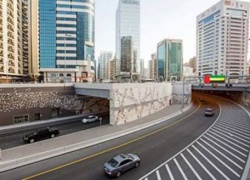15.09.2014

While the rental value growth is experiencing a decline as tenants are seeking affordability in the light of high rents in Abu Dhabi and Dubai, the rental value growth is increasing in Sharjah due to high demand for accommodation. The rent market is witnessing a change in the top three cities of UAE, as rents decline in Abu Dhabi, rental value growth rates fall in the upper end market of Dubai and rents increase due to increased demand in Sharjah, according to Cluttons, said Emirates 24/7.
According to UAE’s Annual Property Report published by the real estate consultancy, affordability is the main factor impacting rental value growth in Abu Dhabi and a further decline in rents is anticipated in the coming months.
The demand by tenants for cheaper accommodation has affected the leasing market and there has been a sheer 0.9% increase in the rents in the second quarter of 2014 and down by 1.9% from the first quarter.
In Dubai, the leasing market has continued to economize marginal growth during the first half of the year, said Cluttons. However, like Abu Dhabi affordability remains prime to the functioning of the market and the upper end of the rental market is facing a fall in its rental value growth rates. The overall growth has been restricted to below 3% during the first half. Despite this decline, the average rents are better than the second half of 2013 by 8.3%.
On the other hand, rents in Sharjah have risen by 5.2 % in the second half succeeding the 10.8% rise in the first quarter. This rise can clearly been attributed to the increased demand for accommodation. At the same time there has been an increase in supply of residential projects by developers but Cluttons predicts this will not reduce the rental value growth.
Moreover, Cluttons anticipates that growth rates will continue to increase in the future resulting in tenants filing complaints with the Sharjah Rent Committee. Hence, landlords will benefit as tenants are opting to reside in their current accommodation as opposed to bearing relocation costs.
According to UAE’s Annual Property Report published by the real estate consultancy, affordability is the main factor impacting rental value growth in Abu Dhabi and a further decline in rents is anticipated in the coming months.
The demand by tenants for cheaper accommodation has affected the leasing market and there has been a sheer 0.9% increase in the rents in the second quarter of 2014 and down by 1.9% from the first quarter.
In Dubai, the leasing market has continued to economize marginal growth during the first half of the year, said Cluttons. However, like Abu Dhabi affordability remains prime to the functioning of the market and the upper end of the rental market is facing a fall in its rental value growth rates. The overall growth has been restricted to below 3% during the first half. Despite this decline, the average rents are better than the second half of 2013 by 8.3%.
On the other hand, rents in Sharjah have risen by 5.2 % in the second half succeeding the 10.8% rise in the first quarter. This rise can clearly been attributed to the increased demand for accommodation. At the same time there has been an increase in supply of residential projects by developers but Cluttons predicts this will not reduce the rental value growth.
Moreover, Cluttons anticipates that growth rates will continue to increase in the future resulting in tenants filing complaints with the Sharjah Rent Committee. Hence, landlords will benefit as tenants are opting to reside in their current accommodation as opposed to bearing relocation costs.






